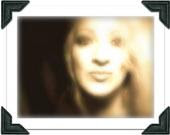By Philip Pullella and Patrick Worsnip
VATICAN CITY (Reuters) - Roman Catholics around the world waited and prayed as Pope John Paul slid toward death on Saturday after a 26-year reign that helped undermine Soviet communism and vigorously upheld long-standing Vatican doctrines.
Tens of thousands of faithful kept a candle-light vigil in St. Peter's Square deep into the night after Vatican officials said the 84-year-old Pope's health was failing rapidly. It was almost certainly the last in a string of recent health crises.
Tearful worshippers continued to pray for a recovery, but even the normally upbeat Vatican spokesman, Joaquin Navarro-Valls, held out little hope the Polish Pontiff could pull through and senior churchmen openly said he was dying.
"This evening or tonight, Christ opens the doors to the Pope," Monsignor Angelo Comastri said in St. Peter's Square. "The successor of Peter, the fisherman, is dying," American Cardinal Francis George said in Chicago.
In its latest bulletin on Friday evening, the Vatican said John Paul's heart and kidneys were weakening and that his blood pressure had dropped dangerously low.
"His suffering, tremendous, public, is like that of Jesus Christ. He is a great leader. We pray that he doesn't have to endure too much pain," said one of those gathered in St. Peter's, Franco Tarquini from Rome, as he choked back tears.
Behind a screen of medical terminology, Church officials prepared the world and its 1.1 billion Roman Catholics for the death of John Paul, who enjoyed the third-longest papacy in history and was a key world figure of the late 20th century.
"The biological parameters are notably compromised," Navarro-Valls said, his normal composure cracking into tears.
In Poland, Father Konrad Hejmo, a close friend of the first non-Italian pope in 455 years, said the man born Karol Wojtyla was still alive but on oxygen.
Catholics flocked to churches to light candles and pray for the man who became Pope in 1978 and revitalised the papacy, visiting 129 countries and territories in 104 trips outside Italy to bring his vision of Christianity to the masses.
CARDINALS SUMMONED
Once fit and athletic, the Pope suffered a series of health dramas, including a near-fatal shooting in 1981 by a Turkish gunman. He suffers from Parkinson's Disease and was twice in hospital with breathing crises before marking Easter last month.
He failed to recover from throat surgery aimed at helping him breathe and on Thursday developed a high fever caused by a urinary infection. But he told aides he did not want to return to hospital and received a sacrament reserved for the dying, commonly known as the last rites.
"The fact he has not gone back (shows) he is serenely carrying the cross and ready to give up and to say 'It is finished,"' said his Irish former private secretary John Magee.
Some cardinals were summoned to the Pope's bedside to say their farewells. Navarro-Valls said the Pontiff had celebrated Mass from his bed on Friday morning.
The faithful said special prayers in Europe, Asia, Africa and the Americas.
In Warsaw, churches were staying open all night and Poles, who revere John Paul as the man who delivered them from 40 years of communist rule from Moscow, prayed in the streets for him to step back from the brink of death.
"If he were to leave us, we won't have anybody to show us the way, to help us understand the world," said Maria Danecka, one of hundreds who crowded in and around the basilica in Wadowice, the town where Wojtyla was born in 1920. He went on to be archbishop in the nearby southern city of Krakow.
ONCE AN OUTSIDER
It was from there that he suddenly sprang onto the world stage on Oct. 16, 1978, a surprise choice for the papacy after his predecessor, John Paul I, died after only a month in office.
From the throne of St. Peter he continued to flay communist oppression and human rights abuses elsewhere in the world with the same fire that had marked his sermons in Poland.
Historians say one of his legacies will remain his role in morally undermining communism in Europe, sustaining the movement that brought down the Berlin Wall in 1989.
But his orthodox line on many Church teachings drew criticism from liberal Catholics in developed countries who opposed his proclamations against contraception, abortion, married priests and women clergy.
After the Pope dies, more than 100 cardinals from around the world will be called to Rome to choose a successor at a conclave that normally starts in the Vatican's Sistine Chapel 15 to 20 days after the death.
There is no favorite candidate to take over as head of the Church, but some churchmen believe the developing world should provide the next pope as that is where the religion is most vibrant. Nearly half of all Catholics are in Latin America.
(Additional reporting by Phil Stewart and Jane Barrett in Vatican City, Wojciech Zurawski in Krakow, Tom Ashby in Lagos, Paul Hoskins in Dublin and Andrew Stern in Chicago)
4/01/2005
Subscribe to:
Post Comments (Atom)







No comments:
Post a Comment